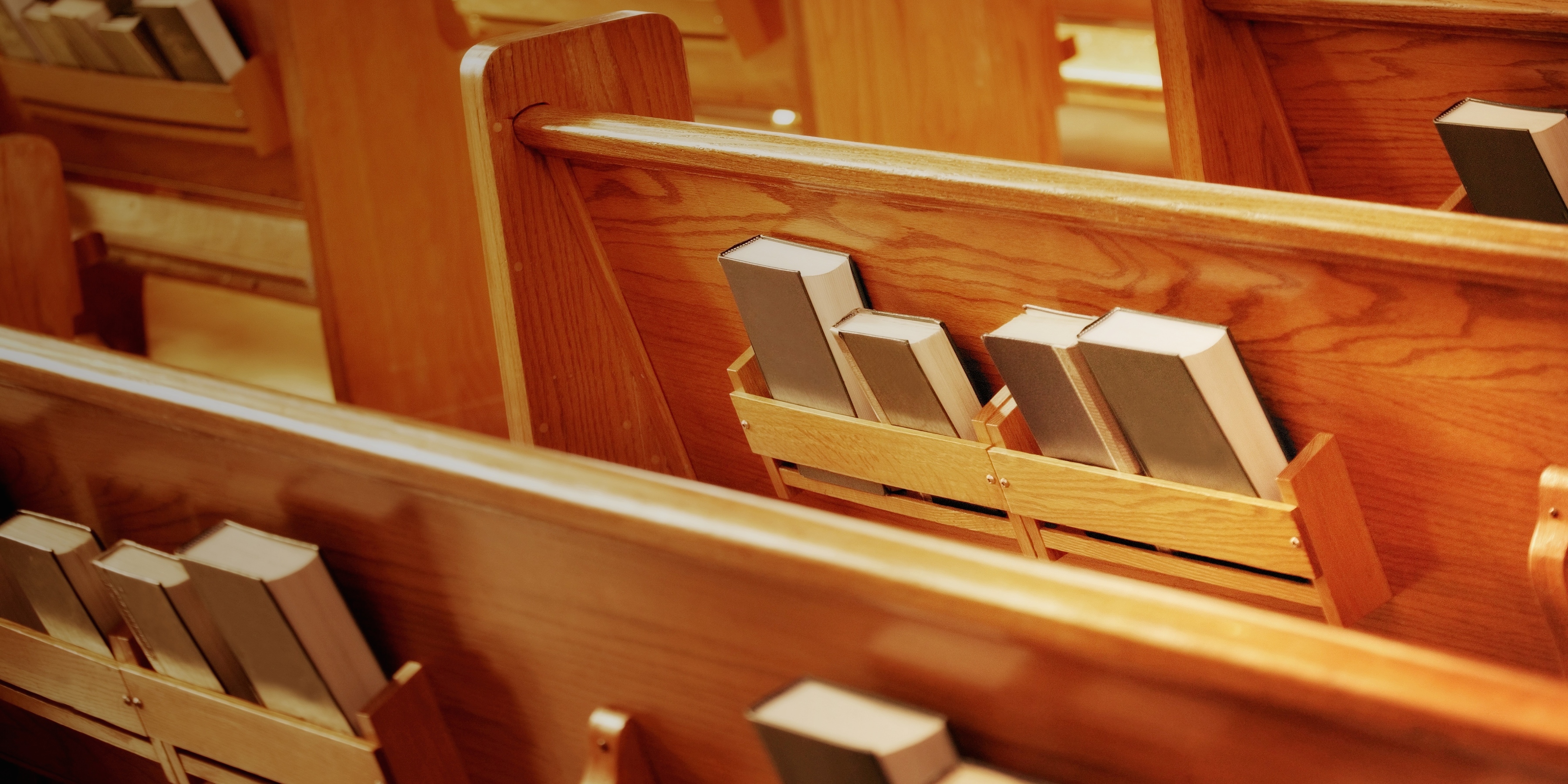Talk about the “wrath of God” kindles all sorts of images in the minds of contemporary Americans. Some immediately think of a powdered-wig Puritan, preaching about sinners dangling over hell as a spider over a flame. Some conceive of a hellfire-and-brimstone revivalist warning sinners to repent or perish. And some picture an angry cult group, protesting with signs announcing whomever God is said to hate that day.
But as distant as the wrath of God seems from our talk, just imagine singing about it.
At “On the Square,” the web commentary of the conservative Christian journal First Things, evangelical historian Timothy George notes a recent dust-up in the Presbyterian Church (USA) as the mainline denomination’s hymn selection committee decided to leave the popular contemporary hymn “In Christ Alone” out of the church’s hymnal.
At issue was the song’s use of language about the wrath of God in relation to the atonement. The hymn’s writers, Keith and Kristen Getty, composed the hymn to include the words, “And on that cross, as Jesus died, the wrath of God was satisfied “
George rightly notes that revisionist hymns are nothing new, and neither is controversy over whether God is, or ever could be, wrathful. And George also demonstrates that the Christian church, even with all our debates about the central meaning of the atonement, includes a hearty affirmation that God is Judge. To ditch the wrath of God is to toss aside something essential to the mission of Christ. He also points out that God’s wrath shouldn’t be seen as a temper tantrum to be appeased, much less some sort of cosmic child abuse, but is instead a crucial aspect of what it means to say God loves.
I agree.
But one might ask, why should we sing about it? After all, there are all sorts of things Christians affirm that we don’t sing. There aren’t many hymns about the impassability of God, or the impeccability of Christ, or other theological fine-points, are there?
As an evangelical, I would argue that it’s necessary to sing about the wrath of God because we are singing not just from and to our minds, but to and from our consciences. There’s a reason why evangelical congregations reach a kind of crescendo when they sing out that line in the Gettys’ song. It’s not because, per the caricature, we see ourselves as a “moral majority” affirming our righteousness over and against the “sinners” on the other side of the culture war.
Instead, it’s just the reverse. When Christians sing about the wrath of God, we are singing about ourselves. Our consciences point us to the truth that, left to ourselves, we are undone. We’re not smarter or more moral than anyone else. And God would be just to turn us over to the path we would want to go—a path that leads to death. It is only because Jesus lived a life for us, and underwent the curse we deserve, that we stand before God. The grace of God we sing about is amazing precisely because God is just, and won’t, like a renegade judge, simply overlook evil.
Persons from other traditions will, of course, disagree with us about whether there is a God, whether he is loving and/or wrathful, and whether or not the Gospel is true. But Americans should recognize that the wrath of God isn’t some innovation by a tiny band of fundamentalists. American history is embedded with talk—and music—about the wrath of God.
The Civil War-era hymn “The Battle Hymn of the Republic,” after all, is far more direct in its wrath of God imagery than any hymn rejected by the Presbyterians. God is “trampling out the vintage where the grapes of wrath are stored,” we sing. God is, in this American hymn, wielding a “terrible, swift sword” against injustice. Why is this important? It’s because the Americans singing the song were reminding themselves that slavery isn’t just a matter of regional conflict, but a matter of moral accountability, an accountability that transcends political caprice.
Likewise, the Civil Rights movement grounded its non-violent resistance to Jim Crow wickedness with language about the wrath of God. Martin Luther King Jr. spoke out against the fire hoses and dog attacks of the Alabama police forces by saying, “We will leave them standing before their God and the world splattered with the blood and reeking with the stench of our Negro brothers.” King was pointing a professing Christian populace to a judgment seat.
He was saying what Odetta would sing to the terrorist forces of the Ku Klux Klan and their allies, “You may run on for a long time, lemme tell you, God Almighty gonna cut you down.”
I’m hardly one to tell Presbyterians what they ought to have in their hymnals. But the Gospel is good news for Christians because it tells us of a God of both love and justice. The wrath of God doesn’t cause us to cower, or to judge our neighbors. It ought to prompt us to see ourselves as recipients of mercy, and as those who will one day give an account.
If that’s true, let’s sing it.
—–
This article first appeared at www.faithstreet.com. You can view the original here.







